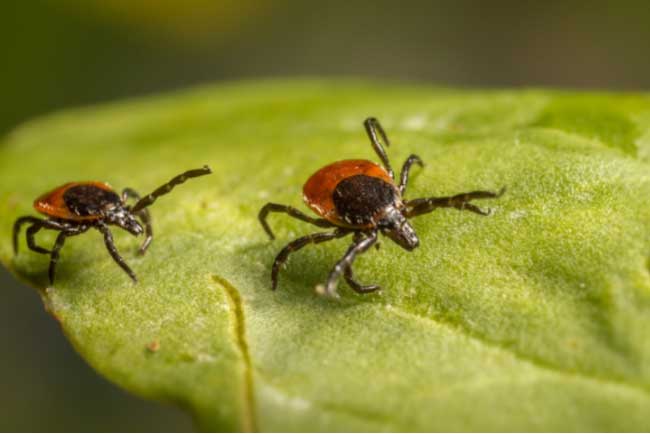With warmer weather more of us are venturing out to enjoy nature and taking our dogs for long walks. But also out in the grass are ticks.
Ticks can carry diseases like babesiosis, Rocky Mountain spotted fever, tick-borne relapsing fever, tick paralysis, and tularemia. Also certain ticks can carry Lyme disease.
“Definitely a lot of animals coming into the branch do have ticks that we have to treat.” Said Danielle Jackman, Manager for the Castlegar and District Society for Prevention of Cruelty to Animals (SPCA).
With winters getting milder, tick season is getting longer.
Some people think that ticks drop on you from the trees. More often ticks are hiding in tall grass and catch a ride when you walk by. Watch out when walking on game trails or old overgrown paths that are thick with vegetation.
When out walking and when you want a break, look for bare rock to sit on. A simple trick is tuck your pants into your boots when you are out hiking. A simple trick is to spray your clothes with insect repellent to help repel the tick.
When you get back from walking with your furry friend make sure to check their feet, their back, their ears, along their back and even around their mouth. Don’t forget to check your clothes for ticks, also check yourself paying particular attention to the pubic region, the base of the skull, and the scalp.
You can protect your cats and dogs from fleas, ticks and also from heartworm. Treatments protect your fur buddies and improve the quality of life for your animals.
It is tempting to head to the pet store to pick up flea and tick protection. But sometimes the simpler solution may not be the best one for your pet.
“I do recommend that you consult a veterinarian.” Says Jackman. The vet can determine the exact dosage and product that is right for your animal. “If you get the wrong dose you can do a lot of harm.” Said Jackman.
Seizures along with other serious side effects can even cause death for animals when administered in the wrong dosage.
The trip to the veterinarian may cost a little but it will determine the right dosage and warn you of any side effects to watch for. Plus if your pet has an adverse reaction your vet will know the proper treatment.
In the West Kootenays we are so far free from heartworm, but it is a factor if you go camping in Alberta or even in the Okanagan. In Washington State heartworm has been reported and the case count continues to go up. Heartworm has been found in all 50 states.
To protect your dog from heartworm you need to first get them into your vets for a blood test. This simple test determines if your canine has already been exposed and has heartworm. If your pup has heartworm then your veterinarian can prescribe treatment to help kill the heartworm. Early detection and treatment for heartworm can lead to a good outcome. The longer your animal has had heartworm the greater the damage that can result from the parasite. Dogs with higher numbers of worms are generally found to have more severe heart and lung disease due to inflammation that happens in and around the arteries of the lungs. Later, the heart may enlarge and weaken due to an increased workload and congestive heart failure may occur.
The best treatment for heartworm is prevention. After the initial blood test to determine your animal hasn’t been exposed then you are safe to start a treatment plan that keeps your fur baby safe.
If you have a cat and you live in an area with reported heartworm then you need to be proactive. Contact your vet and get your cat checked with a simple blood test.
Your cat can get bit by a mosquito and end up infected by heartworm. What is scary is that there is no safe treatment for your cat if it is infected. The safe treatment is to protect your cat from getting heartworm or ticks or fleas.
Hopefully you and your fur buddies will be able to enjoy the warmth of the season without bringing home any unwanted guests.
Willa Condy was born and raised in the West Kootenay. She is married, lives in Trail with her “better half” and their dog Roxy. Willa is part of the baby boom and loves photography, music, writing and having fun. Her email address is [email protected]


